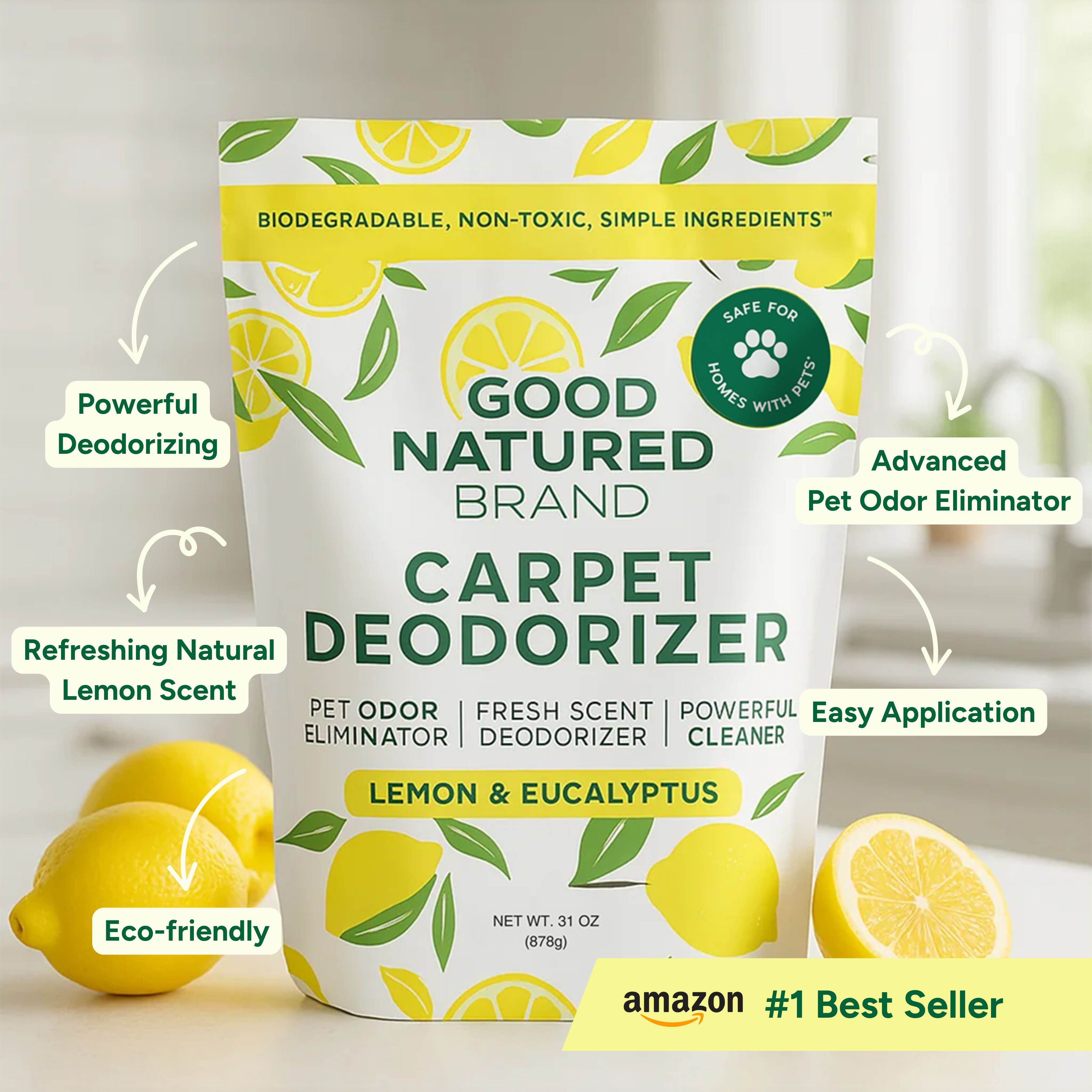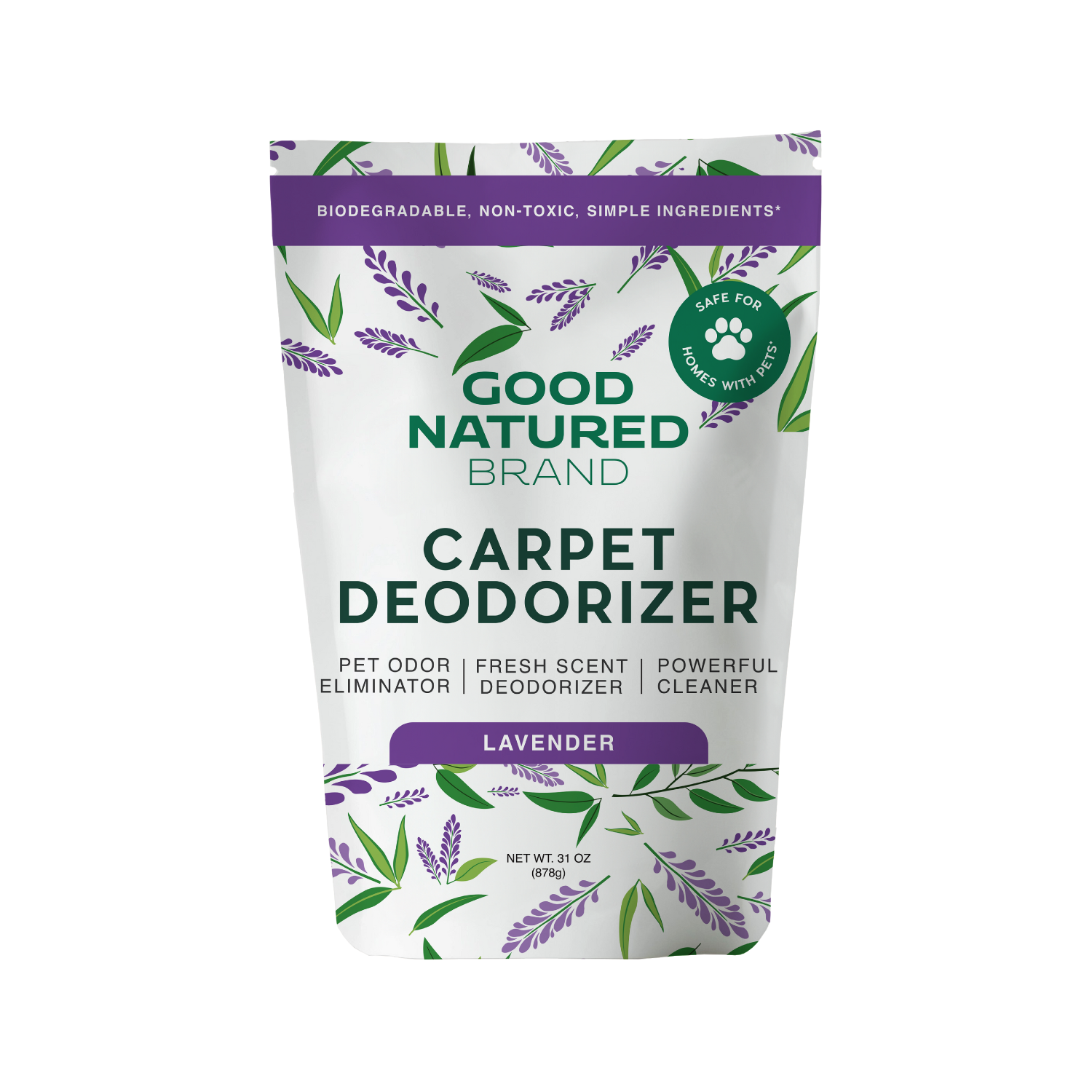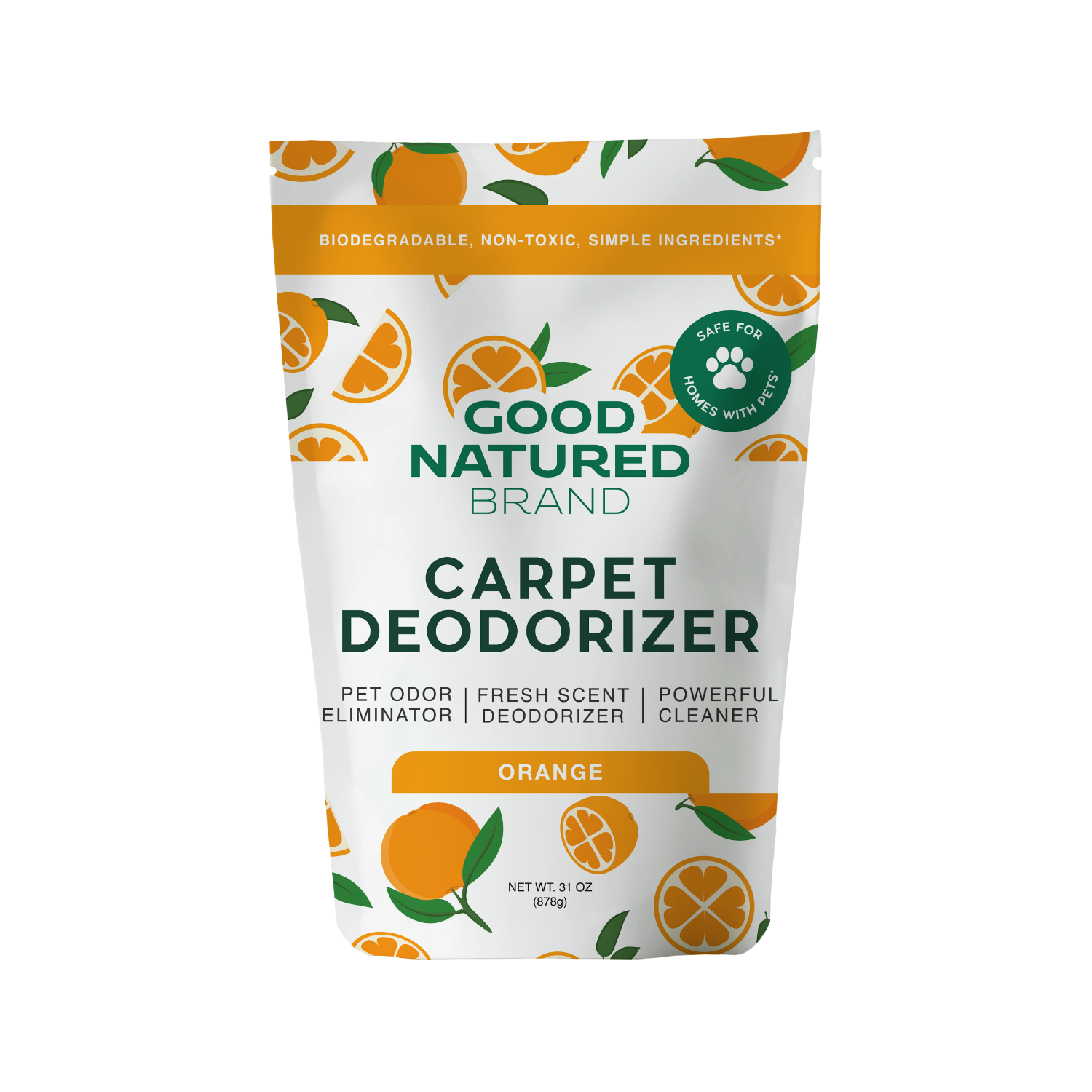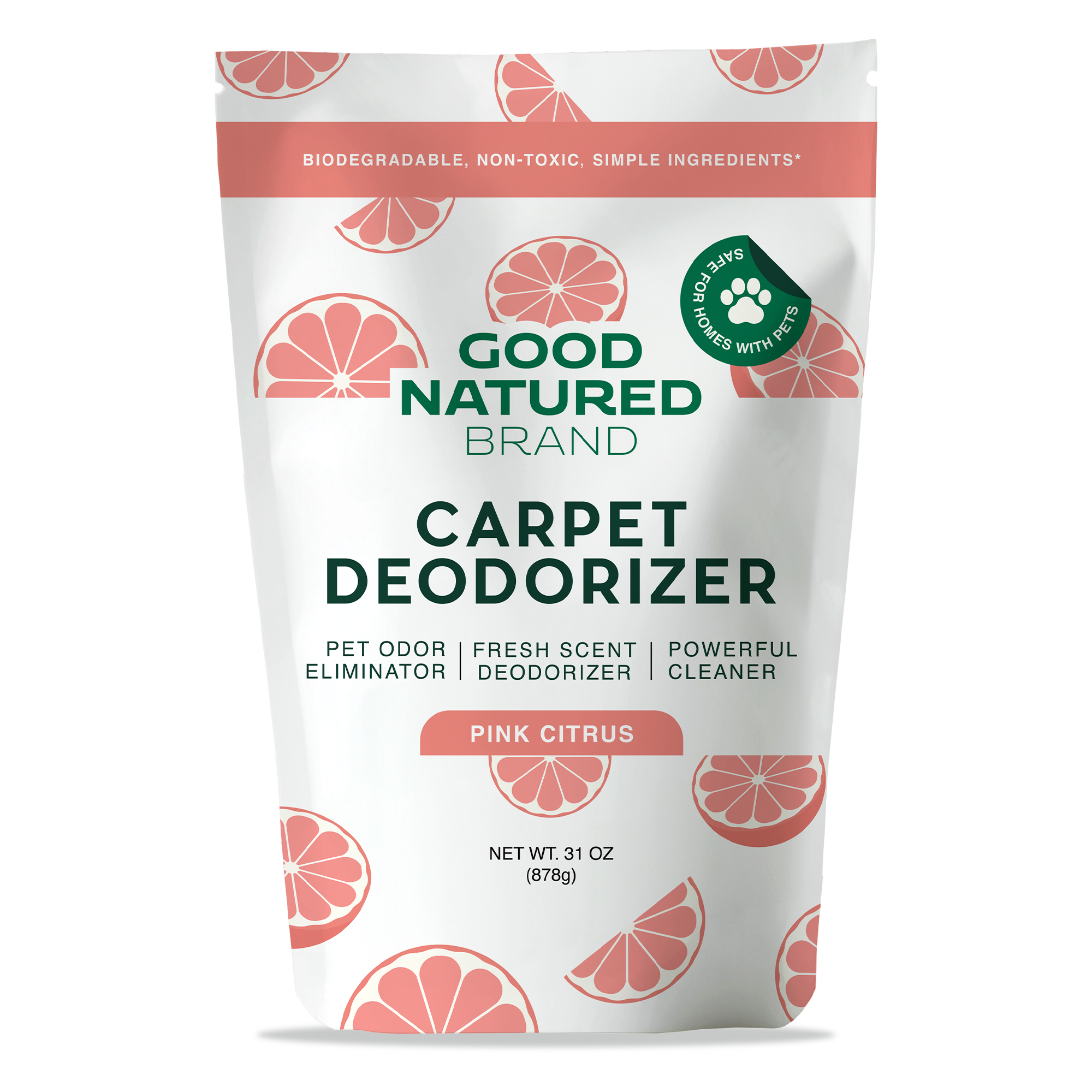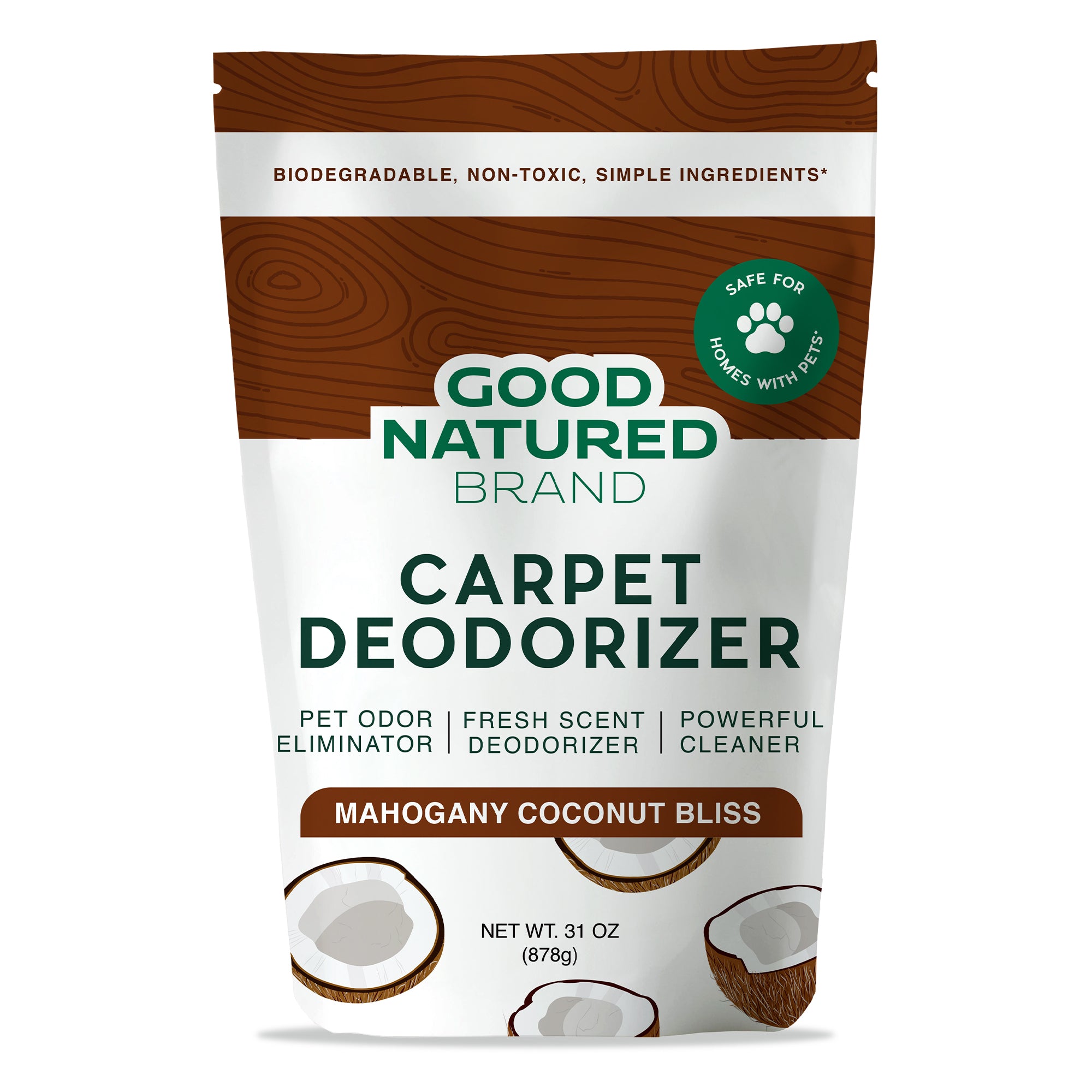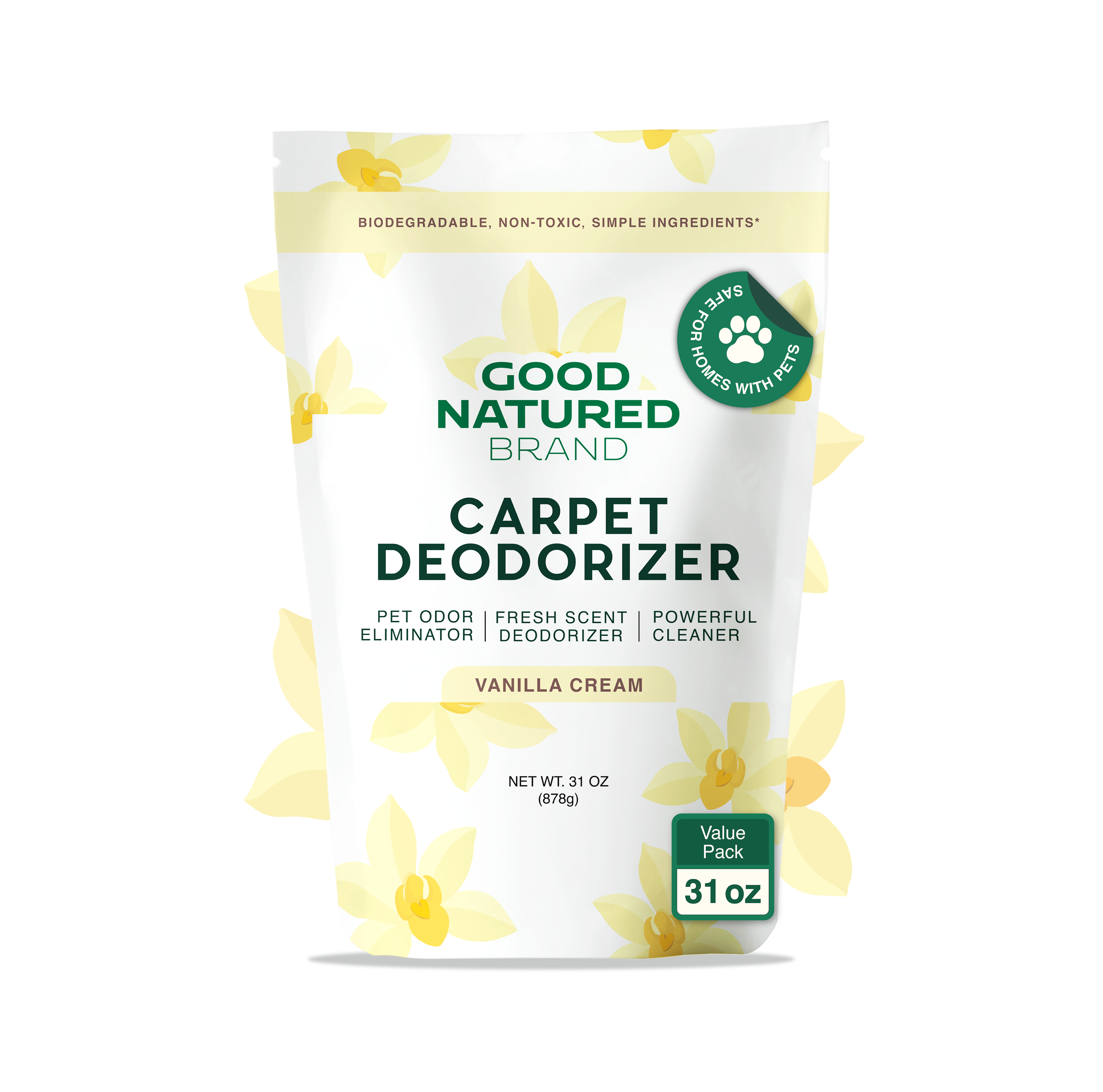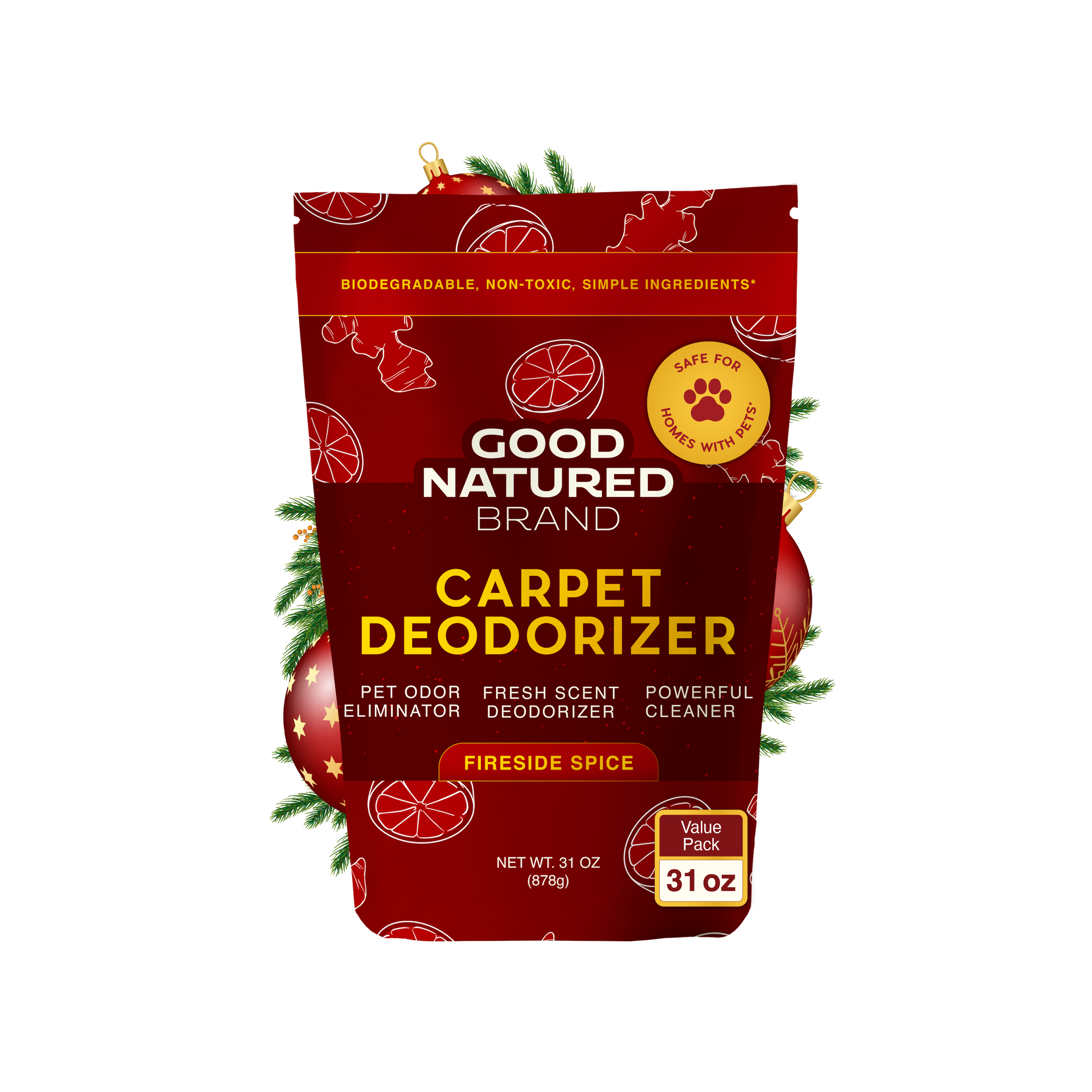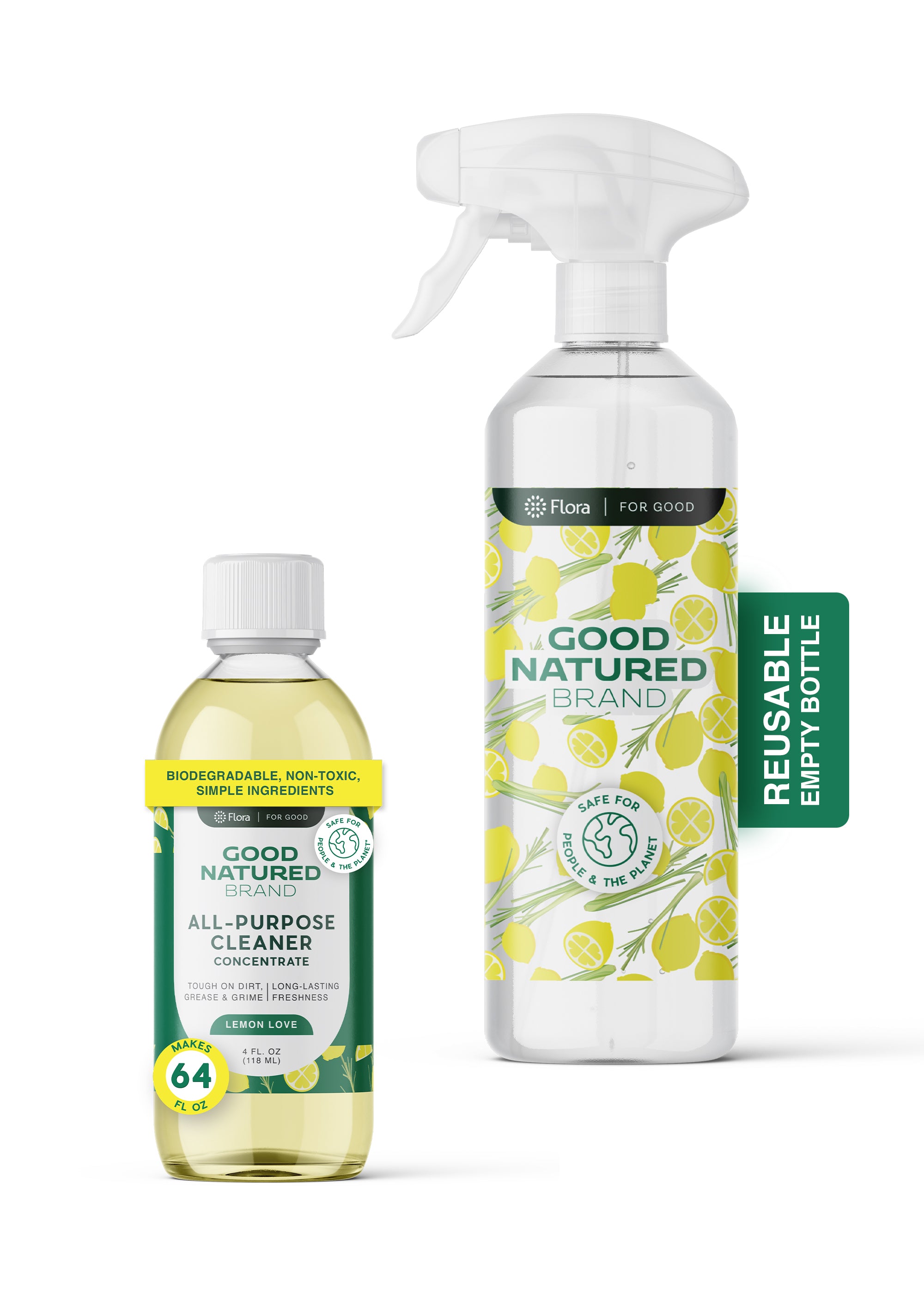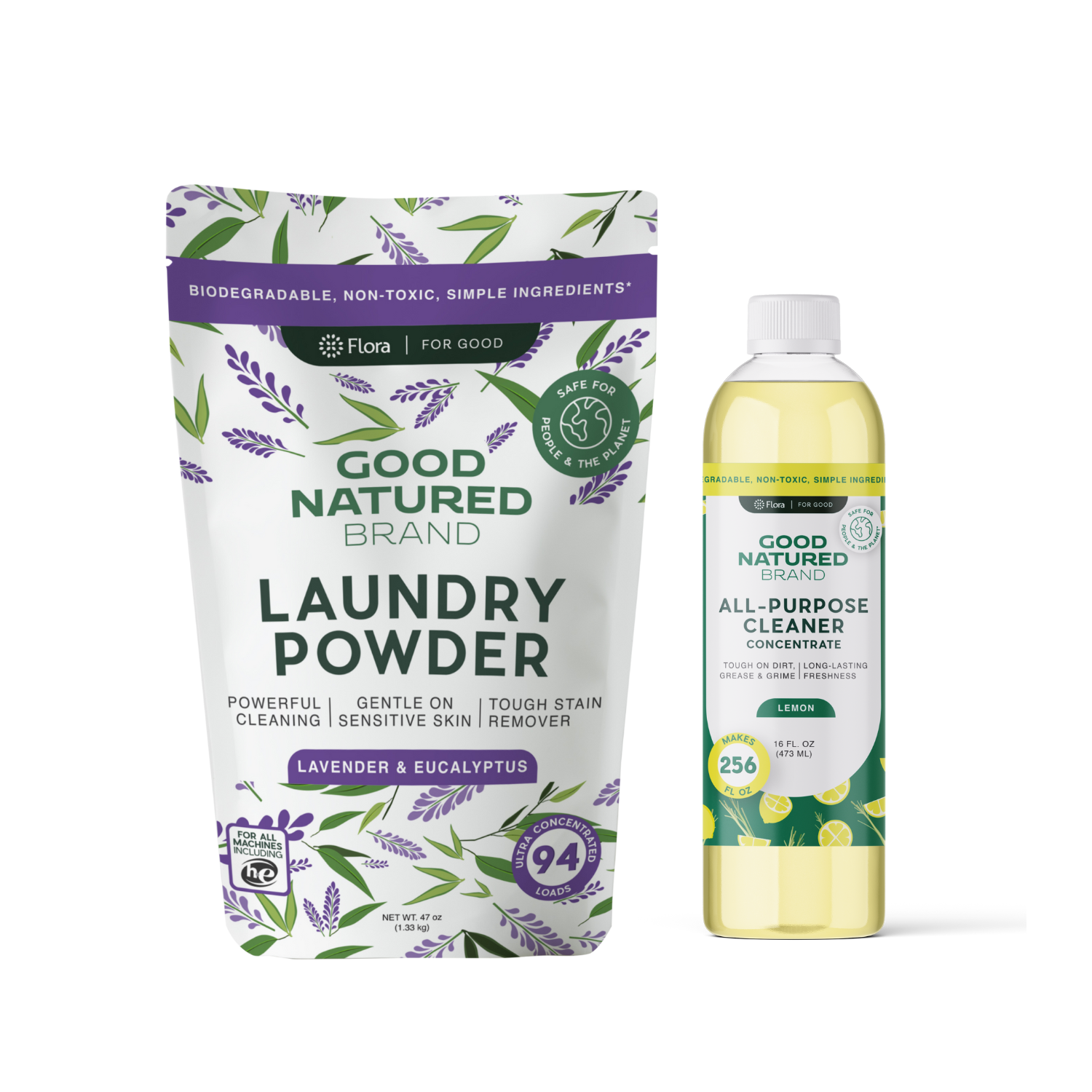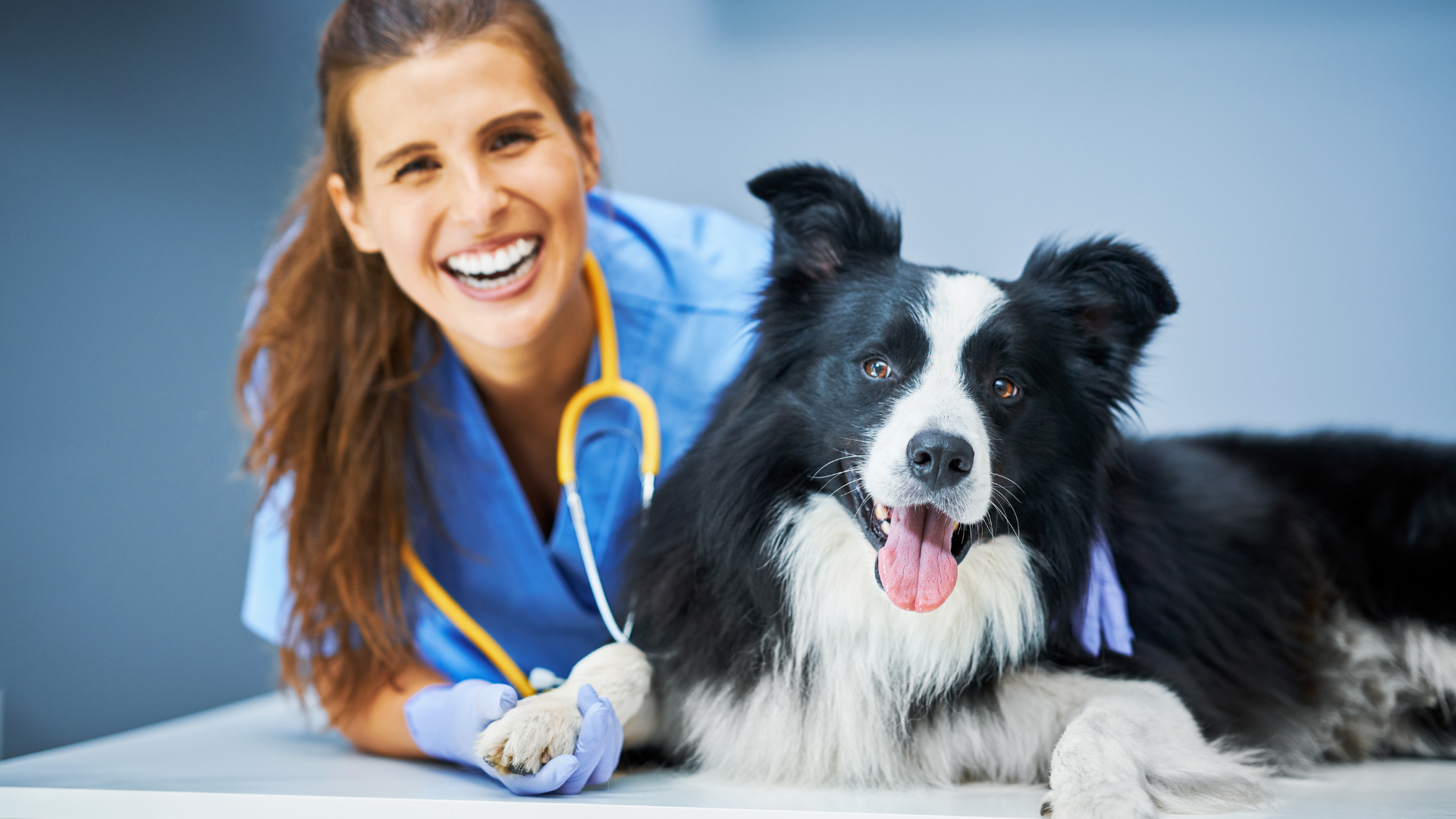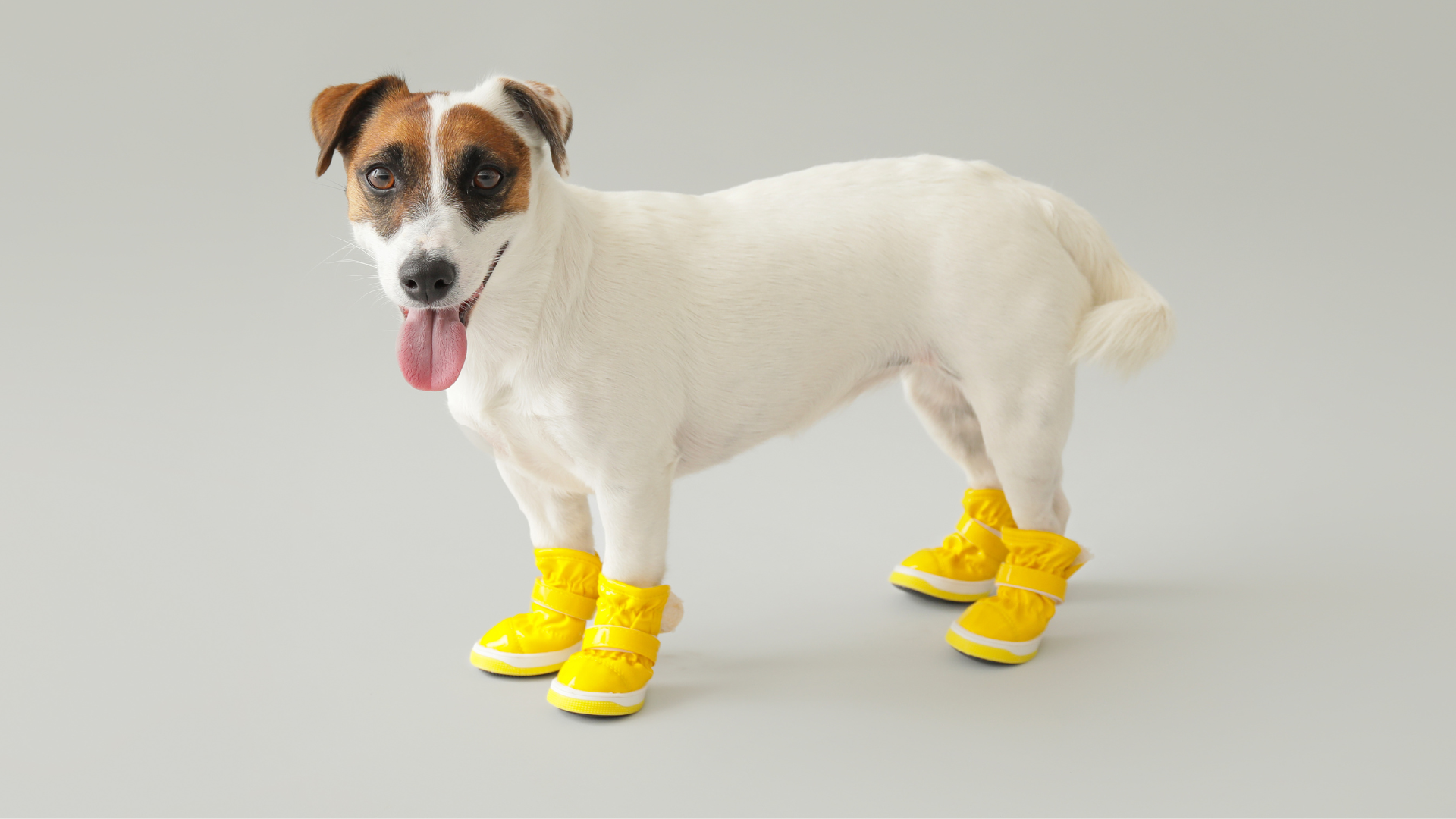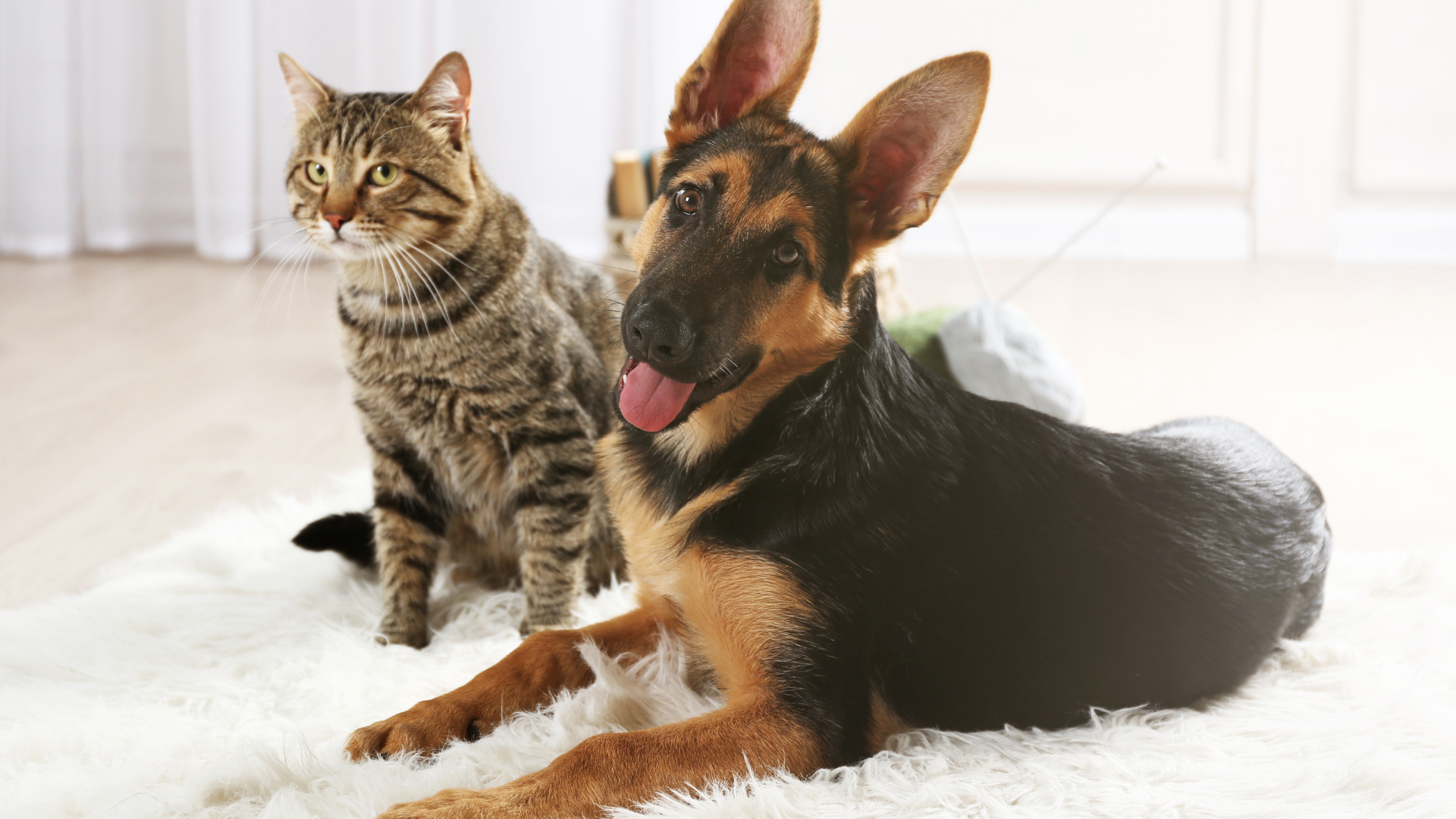You’re enjoying a cup of creamy yogurt when your dog looks up at you with those pleading eyes, silently begging for a taste. It’s a familiar moment for pet parents everywhere—and it raises a common question: Can dogs have yogurt?
The short answer is yes, dogs can have yogurt—but not all kinds, and not in all quantities. Yogurt can be a healthy and tasty treat for dogs, but only if served in moderation and prepared the right way. Like most human foods, it comes with both benefits and risks.
In this guide, we’ll uncover everything you need to know before sharing yogurt with your furry friend—from the science behind its nutrients to which types of yogurt are safest. For more helpful pet nutrition and home care advice, check out the Good Natured Brand Blog.
Can Dogs Have Yogurt? The Quick Answer
Yes, dogs can eat yogurt—as long as it’s plain, unsweetened, and free of artificial sweeteners. Yogurt is rich in calcium, protein, and probiotics, all of which can support your dog’s digestive and immune health.
However, not all yogurts are created equal. Many store-bought yogurts contain added sugars, flavorings, or xylitol, a sweetener that’s toxic to dogs. Even “natural” fruit-flavored varieties often include artificial ingredients or high-fat dairy, which can lead to stomach upset.
To keep your pup safe, choose plain Greek yogurt or unsweetened natural yogurt in small amounts.
Is Yogurt Good for Dogs? The Health Benefits Explained
When offered correctly, yogurt can be a nutritious snack for your dog. Let’s explore why some dog owners and veterinarians recommend adding it to your pet’s diet.
Probiotics for Gut Health
Yogurt contains live bacterial cultures, known as probiotics, which can help balance your dog’s gut flora. These “good bacteria” support digestion, reduce inflammation, and promote better nutrient absorption.
Dogs who occasionally experience loose stools or mild digestive upset may benefit from a small amount of probiotic-rich yogurt. However, yogurt isn’t a cure-all—some dogs tolerate probiotics better in supplement form.
Protein and Calcium Support
Dogs need protein and calcium for strong muscles, bones, and teeth. Yogurt provides both in a form that’s easy to digest (for dogs that tolerate dairy). It can be a nutritious addition to your dog’s food rotation—especially for active or growing pups.
Immune System Boost
A healthy gut means a stronger immune system. By improving intestinal balance, probiotics found in yogurt can help your dog’s body better fight off infections, allergies, and general inflammation.
When Yogurt Can Be Bad for Dogs
While yogurt can have health benefits, it’s not right for every dog. Feeding the wrong type—or too much—can cause digestive problems or even more serious health issues.
Lactose Intolerance
Most adult dogs are lactose intolerant to some degree. After weaning, their bodies produce less lactase—the enzyme that digests lactose found in dairy products.
Signs your dog may be lactose intolerant include:
-
Gas and bloating
-
Loose stools or diarrhea
-
Vomiting
-
Frequent stomach rumbling
If your dog shows any of these symptoms after eating yogurt, it’s best to avoid dairy altogether.
Sugar and Artificial Sweeteners
Sweetened yogurts often contain high levels of sugar, which can lead to weight gain, dental problems, or diabetes. Some “sugar-free” yogurts are even more dangerous because they contain xylitol, which is toxic to dogs and can cause a sudden drop in blood sugar or liver failure.
High Fat Content
Full-fat yogurt may taste delicious, but it can upset your dog’s stomach—especially if they have a history of pancreatitis or sensitive digestion. Opt for low-fat or non-fat yogurt if your dog enjoys dairy.
Can Dogs Have Greek Yogurt?
Yes—Greek yogurt is one of the best types of yogurt for dogs, as long as it’s plain and free from additives.
Greek yogurt is thicker, higher in protein, and lower in lactose than traditional yogurt. This makes it easier for dogs to digest and less likely to cause stomach issues. It’s also rich in probiotics that support gut health.
Still, moderation is key. Even though Greek yogurt is lower in lactose, too much of it can cause digestive discomfort in sensitive dogs. A few spoonfuls once or twice a week is plenty for most medium-sized dogs.
Can Dogs Have Flavored or Fruit Yogurt?
It might be tempting to share a spoonful of blueberry or vanilla yogurt, but flavored yogurts are not recommended for dogs.
Most contain added sugars, syrups, and artificial flavorings that can upset your dog’s stomach. Even fruit-flavored yogurts labeled “natural” often have hidden sweeteners. Some brands also add preservatives or stabilizers that aren’t meant for pets.
If you want to give your dog yogurt with fruit flavor, make your own version instead:
-
Mix plain yogurt with dog-safe fruits like blueberries, bananas, or apples (in moderation).
-
Avoid grapes, raisins, and anything with added sugar or sweetener.
Preparing your own yogurt snacks ensures your dog enjoys the treat safely—and it gives you peace of mind knowing exactly what’s inside.
When preparing yogurt treats in the kitchen, keep surfaces clean with Good Natured Brand All-Purpose Cleaners. These plant-based, non-toxic cleaners remove sticky spills and residue safely without exposing your pup to harsh chemicals or strong fragrances.
How to Tell If Yogurt Is Safe for Your Dog
Before feeding your dog yogurt, check the ingredients carefully. A safe, dog-friendly yogurt should meet these criteria:
✅ Plain and unsweetened — no sugar, syrup, or fruit flavors.
✅ Contains live active cultures — for digestive benefits.
✅ Low in lactose — Greek yogurt or lactose-free options are ideal.
✅ No artificial sweeteners — especially xylitol or sucralose.
✅ Low-fat or fat-free — to prevent stomach upset.
Avoid any yogurt with vanilla, chocolate, coffee, or fruit mix-ins. These can be harmful or difficult for your dog to digest.
Signs Your Dog Shouldn’t Eat Yogurt
Some dogs simply don’t tolerate yogurt, no matter how plain or high-quality it is. If your dog experiences any of the following symptoms after eating yogurt, stop feeding it and consult your veterinarian:
-
Persistent diarrhea or gas
-
Vomiting or loss of appetite
-
Excessive scratching or ear infections (potential allergy)
-
Lethargy or dehydration
Every dog is different. What works for one may not work for another, so it’s important to start small and observe how your pet reacts.
To keep your home fresh and clean after digestive mishaps, use Good Natured Brand Carpet Deodorizers. They neutralize odors naturally using baking soda and essential oils—perfect for pet accidents or food spills. For washable fabrics like dog blankets or bedding, Good Natured Brand Laundry Powders provide a gentle, hypoallergenic clean without synthetic fragrances.
How Much Yogurt Can Dogs Have?
Moderation is everything when it comes to feeding yogurt to dogs. The right serving depends on your dog’s size, age, and tolerance for dairy.
General serving guidelines:
-
Small dogs (under 20 lbs): 1 teaspoon to 1 tablespoon
-
Medium dogs (20–50 lbs): 1–2 tablespoons
-
Large dogs (over 50 lbs): up to ¼ cup occasionally
You can serve yogurt alone, mix it into their food, or use it as a base for frozen dog treats. Avoid making it a daily habit—it should be an occasional treat, not a meal replacement.
When Yogurt Can Help Your Dog
In certain cases, yogurt can be beneficial beyond just being a tasty snack.
-
After antibiotics: Yogurt can help restore gut bacteria that antibiotics may disrupt.
-
During mild digestive issues: A small serving can sometimes calm minor diarrhea (but persistent cases need a vet).
-
As a treat alternative: It’s a healthier substitute for processed dog treats, especially if your dog enjoys creamy textures.
Always consult your vet before adding new foods to your dog’s diet, especially if they have underlying health conditions.
Keeping Things Clean After Treat Time
Dogs don’t always have the neatest table manners—especially when yogurt’s involved. If your furry friend gets a bit messy, here’s how to keep things spotless the safe, eco-friendly way:
-
Wipe yogurt drips and sticky paw prints from surfaces with Good Natured Brand All-Purpose Cleaners.
-
Sprinkle Good Natured Brand Carpet Deodorizers on rugs to absorb lingering odors.
-
Wash washable dog towels or mats with Good Natured Brand Laundry Powders for a fresh, chemical-free clean.
These products are made from natural ingredients, biodegradable, and safe for use around pets—so your home stays clean and your dog stays healthy.
Best Types of Yogurt for Dogs
Not all yogurts are created equal. If you’re going to treat your dog to yogurt, choosing the right type is crucial for keeping them safe and healthy.
Plain Greek Yogurt
Plain Greek yogurt is one of the best choices for dogs because it’s high in protein, rich in probiotics, and naturally lower in lactose compared to regular yogurt. The thick texture also makes it a fun, lickable treat that dogs love.
Plain Regular Yogurt
Regular plain yogurt (non-flavored and unsweetened) is also safe in moderation. It’s a good option for dogs that tolerate dairy well, but check the label for “live active cultures” to ensure it contains probiotics.
Low-Fat or Non-Fat Yogurt
If your dog is overweight or prone to pancreatitis, low-fat or non-fat yogurt is the safest choice. High-fat dairy can trigger digestive issues or even inflammation of the pancreas in sensitive breeds.
Lactose-Free Yogurt
For lactose-intolerant dogs, lactose-free yogurt is a great alternative. It provides the same benefits—calcium, protein, and probiotics—without upsetting their stomachs.
Goat’s Milk Yogurt
Goat’s milk yogurt is easier to digest than cow’s milk yogurt because it contains less lactose and smaller fat molecules. It’s often tolerated better by dogs with mild dairy sensitivities.
Avoid these at all costs:
-
Flavored yogurts (vanilla, fruit, chocolate)
-
Yogurts containing artificial sweeteners like xylitol
-
Yogurts with added sugars or syrups
-
Yogurts with mix-ins (granola, fruit bits, or candy)
When preparing dog-safe yogurt snacks in the kitchen, wipe down counters afterward with Good Natured Brand All-Purpose Cleaners. These plant-based, pet-safe cleaners remove sticky spills without leaving behind harmful chemical residues.
How to Serve Yogurt to Your Dog Safely
Serving yogurt correctly can make a big difference in how your dog digests it. Follow these tips to make sure you’re feeding yogurt in the healthiest way possible.
Start with Small Portions
Introduce yogurt gradually to your dog’s diet. Begin with a teaspoon or two to gauge their reaction. If there are no signs of discomfort, you can slowly increase the serving size depending on their body weight.
Mix with Regular Food
If your dog isn’t sure about yogurt’s texture or taste, try mixing it into their dry or wet food. This can enhance flavor while boosting nutrition naturally.
Use as a Topping or Treat
You can drizzle a bit of yogurt over your dog’s kibble or serve it on a lick mat for enrichment. It’s a creative way to keep your dog entertained while promoting gut health.
Freeze It for Longer-Lasting Fun
Pour yogurt into silicone molds or an ice cube tray and freeze it. Frozen yogurt treats are perfect for warm days and can help soothe teething puppies.
Homemade Yogurt Treat Recipes for Dogs
Homemade yogurt treats are simple to make, cost-effective, and completely customizable. Here are two safe, vet-approved recipes that dogs adore.
Frozen Blueberry Yogurt Bites
Ingredients:
-
½ cup plain Greek yogurt
-
¼ cup fresh or frozen blueberries
-
1 teaspoon honey (optional, avoid for diabetic dogs)
Instructions:
-
Blend all ingredients until smooth.
-
Pour the mixture into silicone molds or an ice cube tray.
-
Freeze for 2–3 hours.
-
Serve one or two frozen bites as a cool, refreshing treat.
Peanut Butter and Banana Yogurt Pops
Ingredients:
-
½ cup plain Greek yogurt
-
1 tablespoon unsalted, xylitol-free peanut butter
-
½ ripe banana
Instructions:
-
Mash the banana and mix it with yogurt and peanut butter.
-
Spoon into molds or lick mats.
-
Freeze for at least 3 hours.
-
Serve occasionally as a high-protein, gut-friendly snack.
Always clean up after prepping your dog’s yogurt treats using Good Natured Brand All-Purpose Cleaners. It’s non-toxic, biodegradable, and safe for kitchen surfaces where your pup might wander.
Can Puppies Have Yogurt?
Puppies can have yogurt—but only in tiny amounts and only after they’ve begun eating solid food. Their digestive systems are still developing, so introducing dairy too early can cause bloating or loose stool.
When it’s safe:
-
Puppies older than 12 weeks
-
No history of diarrhea or dairy intolerance
-
Small, plain servings once or twice a week
Avoid giving yogurt to very young puppies or those showing signs of lactose sensitivity. For extra nutrition, you can add a drop of yogurt to their food instead of serving it alone.
Yogurt as a Probiotic Supplement
One of the main reasons people feed yogurt to dogs is for its probiotic benefits. Probiotics help balance gut bacteria, improving digestion, immune function, and nutrient absorption.
However, not all yogurts contain enough live cultures to make a difference. When looking for probiotic-rich yogurt, choose brands labeled with “live active cultures” or “contains probiotics.”
If your vet recommends extra gut support, you can also use probiotic supplements designed specifically for dogs. These may provide more consistent results than yogurt alone.
Alternatives to Yogurt for Dogs
If your dog can’t tolerate yogurt, there are several healthy, probiotic-rich alternatives.
Kefir
Kefir is a fermented milk drink similar to yogurt but with less lactose and more diverse probiotic strains. Many lactose-intolerant dogs tolerate kefir better than yogurt.
Pumpkin Puree
Pumpkin is high in fiber and great for digestion. Mixing a spoonful of pumpkin puree into your dog’s food can help regulate bowel movements naturally.
Coconut Yogurt
Unsweetened coconut yogurt is a dairy-free option rich in healthy fats and probiotics. It’s ideal for dogs with lactose intolerance or dairy allergies.
Probiotic Dog Supplements
Vet-formulated probiotic powders or chews can be safer and more effective than relying on yogurt alone. These are specially designed for dogs and easy to mix into food.
Cleaning Up After Yogurt Mishaps
Let’s be honest—dogs aren’t always the tidiest eaters. Whether it’s yogurt splattered on the floor, smeared on fur, or dripped onto the couch, quick cleanup keeps your home fresh and pet-safe.
Cleaning Hard Surfaces
Wipe yogurt spills or paw prints off floors and counters with Good Natured Brand All-Purpose Cleaners. This eco-friendly formula safely removes sticky residue without exposing your pet to harsh chemicals.
Cleaning Carpets and Rugs
If yogurt drips onto the carpet, sprinkle Good Natured Brand Carpet Deodorizers over the area once you’ve blotted the mess. The natural formula absorbs odors and refreshes fabrics with baking soda and essential oils—safe for pets and families alike.
Washing Dog Towels or Bedding
After snack time, toss any messy towels, cloths, or blankets into the wash with Good Natured Brand Laundry Powders. The plant-based ingredients lift stains, eliminate odors, and leave fabrics clean without artificial fragrance or residue.
For more cleaning inspiration and pet-safe home care tips, explore the Good Natured Brand Blog.
Frequently Asked Questions About Yogurt and Dogs
Can dogs have yogurt every day?
It’s best to offer yogurt occasionally—two or three times a week at most. Too much can lead to digestive issues or weight gain.
Can dogs eat frozen yogurt?
Only if it’s homemade using plain, unsweetened yogurt. Store-bought frozen yogurt often contains sugar and artificial flavors unsafe for dogs.
Can dogs have vanilla yogurt?
No. Vanilla flavoring and added sugar make it unsuitable for dogs. Always stick with plain, unsweetened yogurt.
Can yogurt help my dog’s upset stomach?
For mild digestive upset, yogurt may help restore gut bacteria. But if symptoms persist, consult your vet—it could be a sign of an underlying issue.
Can yogurt cause allergies in dogs?
Some dogs may develop allergies to dairy. Watch for symptoms like itching, paw licking, or ear infections.
Final Thoughts: Should You Give Your Dog Yogurt?
So, can dogs have yogurt? Yes—but only if it’s plain, unsweetened, and served in moderation. Yogurt can provide valuable probiotics, calcium, and protein, supporting gut and immune health. However, flavored or sweetened yogurts should be avoided, and dogs with lactose intolerance are better off with alternatives like kefir or coconut yogurt.
Equally important is maintaining a clean, safe environment when feeding or prepping your dog’s treats. That’s where Good Natured Brand comes in:
-
Keep your floors and furniture fresh with Carpet Deodorizers.
-
Wash pet fabrics gently with Laundry Powders.
-
Wipe sticky yogurt splatters effortlessly using All-Purpose Cleaners.
All of these products are eco-friendly, non-toxic, and made with love for homes shared with pets.
To continue learning about natural pet care, eco-conscious cleaning, and healthy living, visit the Good Natured Brand Main Page and follow along on the Good Natured Brand Blog.
Because a healthy pup—and a clean, green home—always go paw in paw.
